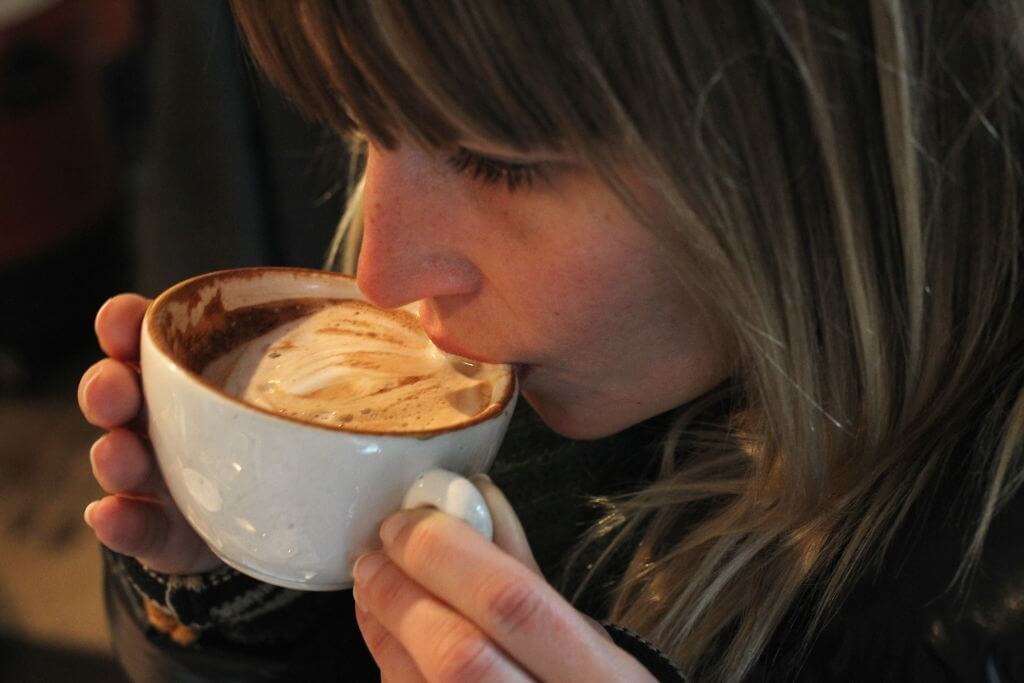Premature ventricular contractions, a form of irregular heartbeat originating in the lower heart chambers that feel like a skipped heartbeat, were shown to be connected with a 54 percent rise in coffee consumption, according to the study. Drinking more coffee, on the other hand, was linked to fewer bouts of supraventricular tachycardia, a fast heart rhythm that originates in the upper chambers of the heart.
Caffeine Has Both Positive And Negative Short-Term Health Impacts
“Coffee is the most commonly consumed beverage in the world, yet its health effects remain uncertain,” said study author Gregory Marcus M.D. M.A.S. “While the majority of long-term observational studies have suggested multiple potential benefits of drinking coffee, this is the first randomized trial to investigate the real-time physiologic consequences of coffee consumption.”

Marcus and colleagues recruited 100 adult volunteers who were given two weeks to wear continuous ECG devices, wrist-worn devices to assess physical activity and sleep, and continuous glucose monitors to track blood sugar levels. The participants were 38 years old, on average 51 percent female and 48 percent white. Researchers also took DNA samples from the individuals’ saliva to look for genetic variations that could alter caffeine metabolism.
“More physical activity which appears to be prompted by coffee consumption has numerous health benefits such as reduced risks of Type 2 diabetes and several cancers and is associated with greater longevity,” Marcus said. “On the other hand, reduced sleep is associated with a variety of adverse psychiatric neurologic and cardiovascular outcomes. More frequent abnormal heartbeats from the upper heart chambers influence risk of atrial fibrillation, and more frequent abnormal beats from the lower chambers or ventricles increase the risk of heart failure. These results highlight the complex relationship between coffee and health.”
Among users who prefer to have a hot drink, coffee is worldwide popular. However, the choice of amount varies from person to person; its effects also vary accordingly. In many cases, experts have found positive impacts of the same on the health of the users. However, in some cases, people have faced negative impacts also, but such events are not in large number.
Coffee consumption was consistently linked to increased physical activity and decreased sleep. Specifically:
- Compared to days when they did not drink coffee, those who drank coffee took over 1000 more steps each day.
- According to their Fitbit trackers, participants slept 36 minutes less per night on days when they drank coffee.
- Drinking more than one cup of coffee more than doubled the number of irregular heartbeats originating in the lower chambers of the heart.
- Each extra cup of coffee eaten was linked to approximately 600 extra steps per day and 18 minutes less sleep each night.
- There were no variations in continuously recorded glucose levels between study participants who drank coffee and those who did not.
Analyses of adherence to their randomization assignment validated these findings, which were enhanced when more versus less coffee was drunk.
When more caffeinated coffee was drunk, study participants with genetic variations associated with faster caffeine metabolism had more aberrant heart rhythms originating in the ventricles or PVCs. The slower a person’s genetics made them metabolize caffeine, the less sleep they got when they consumed caffeinated coffee. The researchers also wanted to see if changes in exercise or sleep altered coffee’s effects on irregular cardiac rhythms, but they found no link.
Because the study participants were randomly given coffee, Marcus emphasized that cause-and-effect can be deduced. These findings were made through repeated assessments of days when coffee was drunk versus days when it was not for each study participant removing any worries about variances in individual-level features as a possible explanation for the findings.